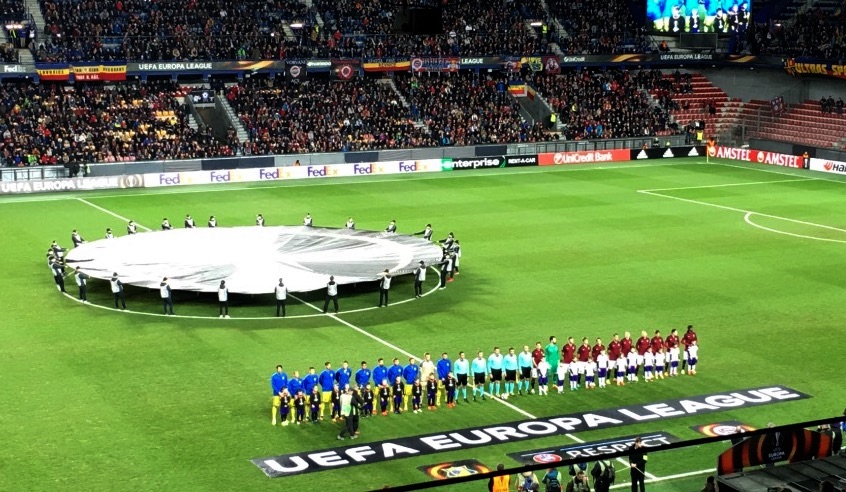Minor sport arbitration was heading towards rendering of an award which none of the parties would have been happy about. And then, arbitrator proposed a mediation window and asked the football coach: “OK, then… What do you really need? Surely not the small amount of money you are claiming?” After a moment of hesitation, claimant answered: “Well…in fact, I would be happy to train the team for free… it’s …just…that once I am receiving at least some money, my wife can understand why I am spending so much time with my team… And since the financial stream run dry, my wife started making scenes and she does not want me to coach the boys anymore…”
Uniqueness of sport disputes
Everyone who has been involved in the sports disputes resolution will claim the unlikeness of this milieu. Though these conflicts slightly resemble the commercial and both individual and collective labour disputes, they show also a great variety of variables which make them absolutely unique. On a regular basis, some extralegal factors such as media interest, non-monetary gains, the essence of time, impact on social relationships or vivid attention of the supporters are always present. Those concerns can be addressed neither by litigation nor by arbitration that is the preferred and most used dispute resolution tool in the field. In addition to that, the mediation’s friendly nature and the possibility of bringing a quick solution to deadlocks could improve players-management relations as well as athlete’s performance.
The aptness of mediation has been recognised by some of the sports associations and federations by having introduced mediation within their dispute resolution rules. It must be said that with various success.
So for instance, the Court of Arbitration for Sport (CAS) as an umbrella institution for resolving sports disputes introduced mediation in 1999. Since that time, it has registered approximatively 50 mediation cases including disputes related to football, cycling, boxing, motocross, judo, and basketball.[1] Despina Mavromati, Mediation of sports-related disputes: facts, statistics, and prospects for CAS mediation procedures, CAS Bulletin, No. 2, 2015 p.24.

In contrast to above-referred numbers, one may mention the example of the Czech Football Association which included mediation in its dispute resolution rules as from July 1, 2016. With one-year anniversary closing, one has to regret that there has not been a single case mediated so far.
And yet, the parties within this particular association are not asking for an efficient and amicable dispute resolution. In fact, they are seeking after something that is present, only, they do not see that the required service is already available.
Football Mediation Window
This demand is perfectly illustrated by the following war-story described to the this post’s author by a fellow sport arbitrator:
It seemed to be just another small claim sports arbitration between a coach and a mediocre football (soccer for our US readers) club active in a regional division. The club was in a financial crisis since it had lost a sponsor. The absence of payments had a disastrous influence on an already fragile budget. Eventually, the club ceased to pay the coach’s and player’s salaries. Since the club-owner was a coach’s friend and classmate, the coach had waited till the six payments became overdue before he initiated arbitration at the arbitration court of the Czech Football Association.
Altogether, the disputed payment was a bit over 1000 EUR. One does not train a local football team as a full-time job, so the coach was also a respected manager at the leading regional company. Thus the coaching presented merely slight improvement of his family budget. This clue led the arbitrator to offer a mediation window in the proceedings. Neither the parties nor their lawyers did understand what the mediation was but they agreed reluctantly in the end of the day.
The arbitrator asked respondent: “OK, then… What do you really need? Surely not the small money you are claiming?”
After a moment of hesitation, the football coach answered “Well… in fact, I would be happy to train the team for free… it’s… just… that once I am receiving at least some money, my wife can understand why I am spending so much time with my team… And since the financial stream run dry, my wife started making scenes and does not want me to coach the boys anymore…”
In the informal discussion that followed, the manager of the team revealed to the coach the worsening financial situation and the reason for it. Surprised coach proposed to ask his employee to consider sponsoring the club…Thus, the parties resolved a complicated dispute by finding a creative resolution and concluding a mediated settlement agreement and the club gained a new sponsor instead of losing a good coach. No need to add that an arbitral award rendered on the base of law would have resolved neither coach’s, nor club’s interest.
Mediation is, however, able to serve in much bigger cases as proved by above-mentioned numbers. Football on the professional level is the main beneficiary of mediation advantages, mainly in relation to transfer disputes and contractual disputes between clubs, players, agents, and coaches.

Ice-hockey Mediation
One of the largest mediation achievements in sport-related disputes was doubtlessly the ending of the 2012-13 NHL labor negotiation deadlock. As this story is well described by other blog posts, let’s just summarise that lockout of the whole season was averted only after the parties met in mediation room. This was especially appreciated by the sports journalists and everyone involved in the negotiation:
When everyone looks back on this tenuous time in the history of the game, the name of United States federal mediator Scot L. Beckenbaugh will likely be the one to be remembered most fondly. Acting as the buffer between the two sides through the marathon 16-hour negotiation that began on Saturday, carried through Sunday and ended with a tentative agreement, Beckenbaugh has received a hero’s praise for his involvement in the dispute.[2]Matt Brigidi, NHL Lockout Over: Mediator Credited for ‘Extraordinary Contribution’ to New Deal, SB Nation (Jan. 6, 2013, 7:33 AM), quoted through Mark Grabowski, Both Sides Win: Why Using … Continue reading
Further, this story helped to promote mediation in ice-hockey-loving countries (if you do not know what ice-hockey is, do not bother, you are probably living outside the dozen of states interested in this crazy game, just check this video and go buy your first ice-skates) such as the Czech Republic, Sweden and Canada. So, mediation may not only help the athletes and associations with sports disputes resolution but sports disputes may help mediation too.
It is worth to add that, another conflict related to NHL is on the horizon today. After lengthy negotiations between National Hockey League, International Olympic Committee and International Ice Hockey Federation, the representatives of the NHL announced that they will not participate in the 2018 PyeongChang Winter Olympic Games, ending a run of five consecutive Winter Olympics with NHL players.
This means that the ice-hockey cup on the Winter Olympics which is regarded as the peak of international ice hockey competition will be without the top world players. This will obviously mark the quality of the game down. This presents a major disappointment not only for every ice-hockey supporter but also for some of the players for whom the national representation presents the top of their careers. Some of them are not ready to swallow that bitter pill. For instance, Alex Ovechkin, a Russian star of the Washington Capitals stated decisively: “I’m going! ” Though the sports lawyers are sceptic regarding his chances, the supporters all around the world are keen to see the sequel…
Maybe, another mediation may help ice-hockey and maybe, ice hockey may help mediation again?
________________________
To make sure you do not miss out on regular updates from the Kluwer Mediation Blog, please subscribe here.

References


